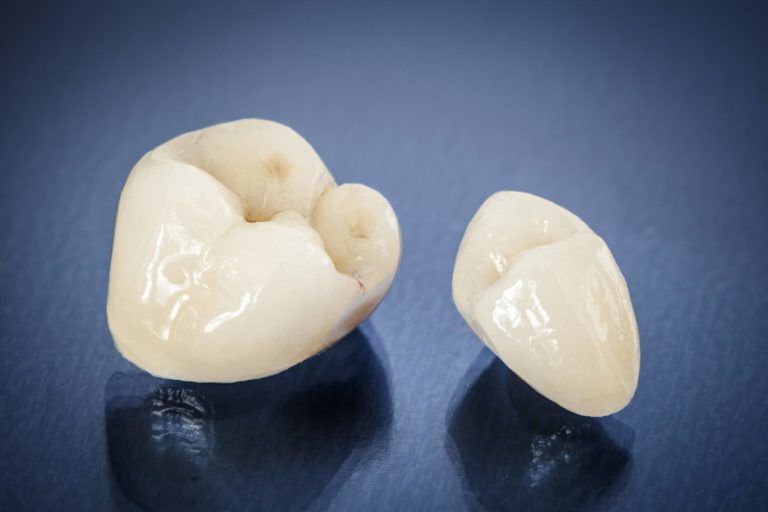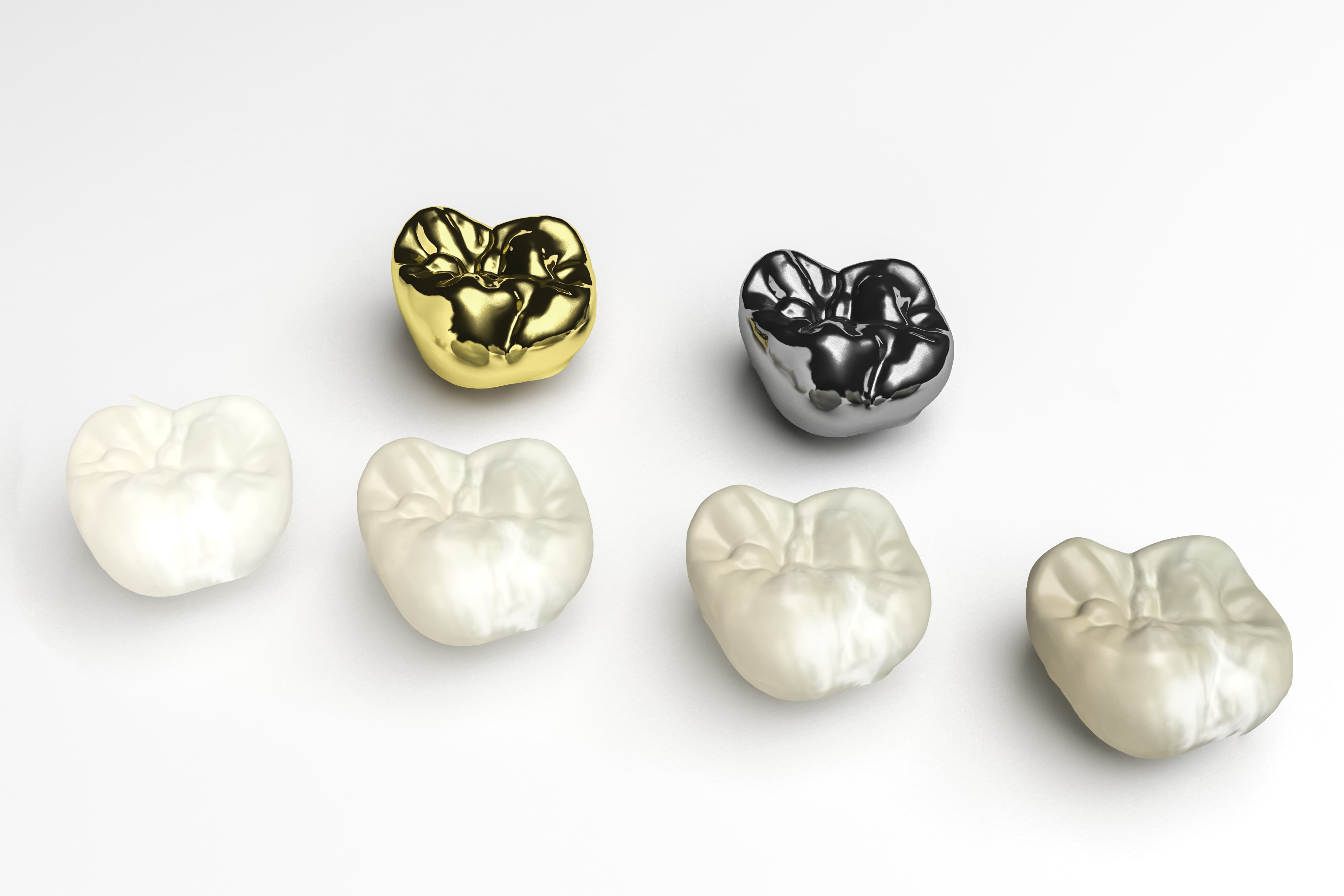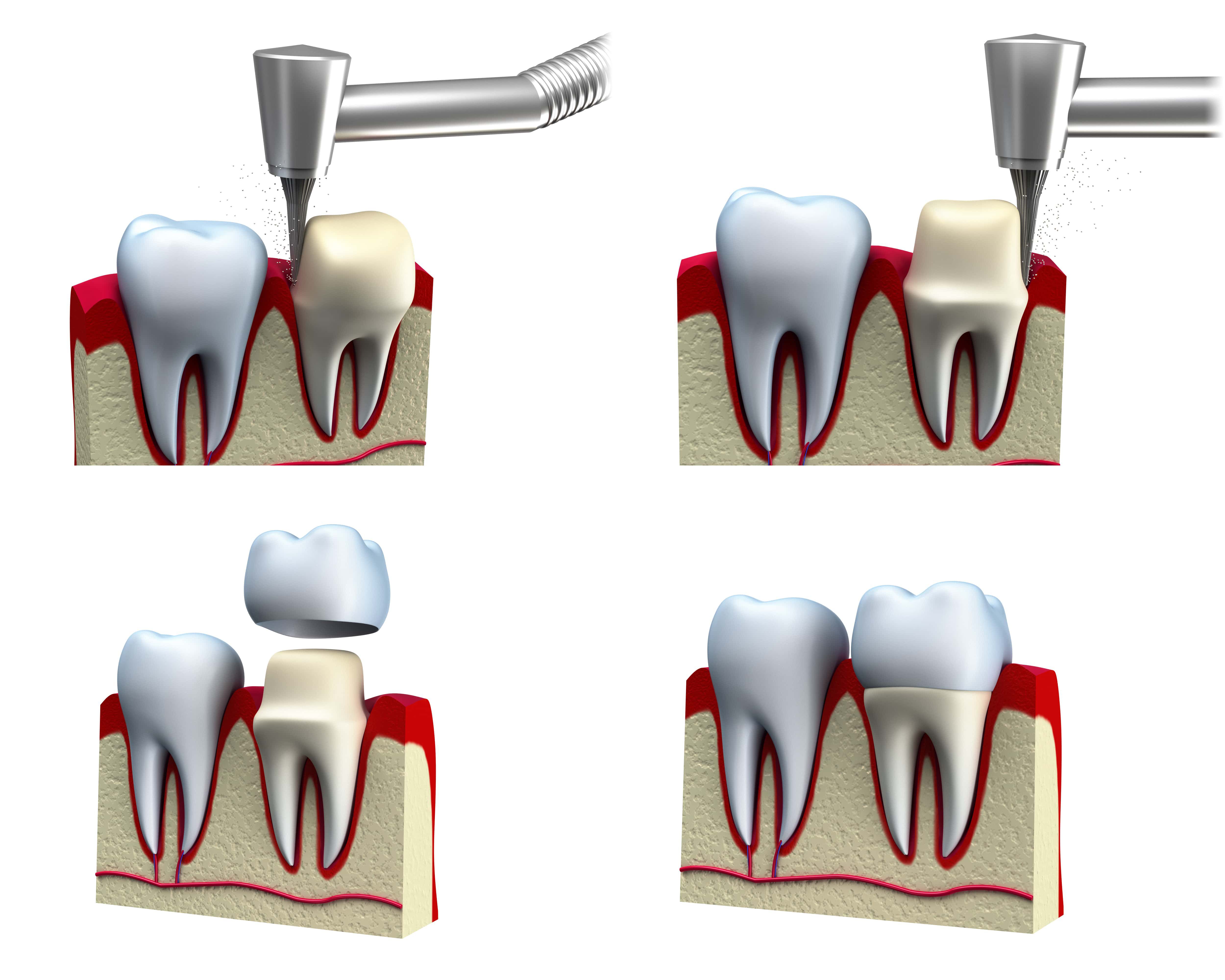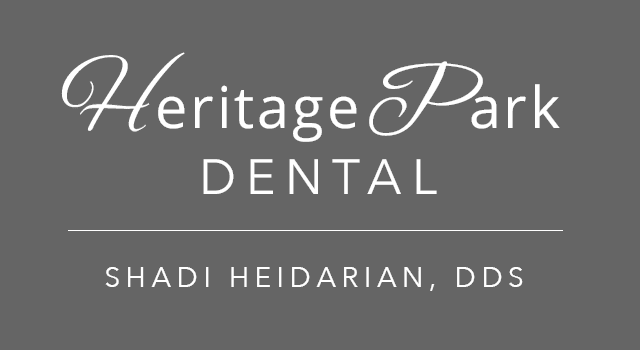Porcelain Crowns (Caps)

Dental crowns, also known as dental caps, are dental restorations that encapsulate the entire tooth in order to protect and strengthen, as well as maintain the shape and size of the tooth. They are used to restore a tooth that has been significantly damaged, decayed, or one that has lost a large filling and is lacking adequate tooth structure. Dental crowns are also used in coordination with dental implants, after a root canal, and to support a dental bridge.
Did You Know?
The first type of all-ceramic dental crowns was called the “porcelain jacket”. The porcelain jacket dental crown was first patented in 1889 by Charles H. Land. Since then, there have been many advances in dental technology, yielding a modern dental crown that has been engineered for strength and durability.
Frequently Asked Questions:
Am I a candidate for a dental crown?
You may be a candidate for a dental crown if you have a tooth that is severely decayed, damaged, or otherwise missing part of its natural structure. Dental crowns are used to protect tooth enamel that has been weakened from either decay or a large filling, or to provide strength to cracked or broken teeth. They are also used to provide additional support to a tooth after a root canal or to anchor a dental bridge in place. Finally, you may also want to consider a dental crown if you have misshapen or severely discolored teeth that do not respond to traditional whitening treatments. To find out if a dental crown is the best restoration option for you, schedule a consultation with Dr. Heidarian of Heritage Park Dental today!
Are there different types of dental crowns?

Yes, there are a few different types of dental crowns including porcelain, ceramic, resin, and stainless steel. Each type of crown has its own pros and cons, so Dr. Heidarian will discuss these with you to determine what type crown is right for you. In most cases, Dr. Heidarian recommends all-porcelain or all-ceramic dental crowns because of their strength and visual appeal. Nevertheless, there are certain cases where another option may be more ideal.
What can I expect when having a dental crown placed at Heritage Park Dental?
At Heritage Park Dental, you can expect to have your dental crown placed over the span of two dental appointments. During your initial appointment, a dental impression will be taken of your mouth by having you bite down into a plastic or metal tray containing impression material. This will be used to create a mold of your mouth that will be sent to a dental laboratory and used to fabricate your custom dental crown. It will also be used to create a temporary crown that will be worn until your permanent restoration has been completed.

Next, your tooth will be prepared for the placement of a dental crown. To keep you comfortable during the procedure, Dr. Heidarian will first numb the affected area with anesthetic. Then she will remove any decayed tissue and shape the remaining tooth structure so that it can accommodate a dental crown. Once your tooth has been properly shaped, the temporary dental crown will be placed using temporary cement. She will then check your bite to make sure everything is lining up properly.
During the second appointment, the permanent dental crown will be placed. However, the temporary crown must first be removed. Then, your tooth will be cleaned prior to cementing the permanent dental crown. Once your permanent dental crown is placed, your tooth will be restored to its previous shape, size, color, and function.
Will I need to follow any special guidelines after having a dental crown placed?
After you have your temporary dental crown placed, you will need to take special care not to dislodge this temporary crown. To prevent the temporary crown from being dislodged, you should avoid chewing on the side that has the temporary crown, as well as avoid excessively hard, sticky, or chewy foods. While flossing, you will also want to take special care not to slide the floss under the temporary crown. You will only need to worry about these things while temporary crown is in place. Once your permanent crown is placed, you can go back to chewing normally.
How do I care for my dental crown?

You will care for your dental crown just as you would care for your natural teeth. Dr. Heidarian recommends a daily dental routine of twice daily brushing with a fluoridated toothpaste and flossing. You will also want to schedule regular dental checkups and professional teeth cleanings at least twice a year with Heritage Park Dental. This ensures that Dr. Heidarian can evaluate your dental crown for any changes, signs of wear, or damage.
You will also want to avoid damaging your dental crown. Examples of behaviors that can cause damage to your dental crown include biting your nails, chewing on hard objects, ice chewing, or using your teeth to open packages. Additionally, if you grind or clench your teeth you may want to consider being fit for a night guard to protect your dental crown.
Are there any problems that could arise with a dental crown?
As with any type of dental procedure, there is always the possibility of problems. Some possible problems that could occur include tooth sensitivity, chipped crown, loose crown, crown that falls off, an allergic reaction, or a dark line above the gum line.
Tooth sensitivity is one of the more common problems and can occur if the nerve is still intact or if the crown is not properly fitted. If the sensitivity is caused by improper fit, the crown can easily be adjusted. Some other problems are chipped or loose crowns. These cases can generally be prevented by proper care and regular dental checkups to monitor the condition of the crown. However in cases where the crown becomes damaged or loose, it can be repaired or replaced.
Finally, allergies and dark lines can be the result of a metal or porcelain fused to metal (PFM) crown. If you have any sensitivities to metal, you should avoid metal crowns to prevent an allergic reaction. With metal restorations, dark lines appear when the metal underlayer shows through the porcelain.
How long do dental crowns last?
The lifespan of your dental crown will depend upon the material it is made from, how well you take care of it, and how well it fits your tooth. In most cases, all-ceramic or all-porcelain dental crowns last about 5-7 years, while mental crowns can last about 10-15 years.
What is the cost of a dental crown?
The total cost of a dental crown is approximately $1,000-$3,500. However, the final cost will depend on a number of factors including the material used, the location of the affected tooth, and the extent of treatment. To help with the cost, many dental insurance plans offer partial coverage. The exact amount of coverage will depend on your individual dental insurance plan, so our office will help you to determine that before your treatment.
To enhance your smile with a dental crown, schedule a consultation with Dr. Shadi Heidarian of Heritage Park Dental today! Heritage Park Dental serves Palo Alto and the surrounding communities.
